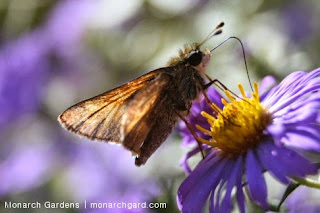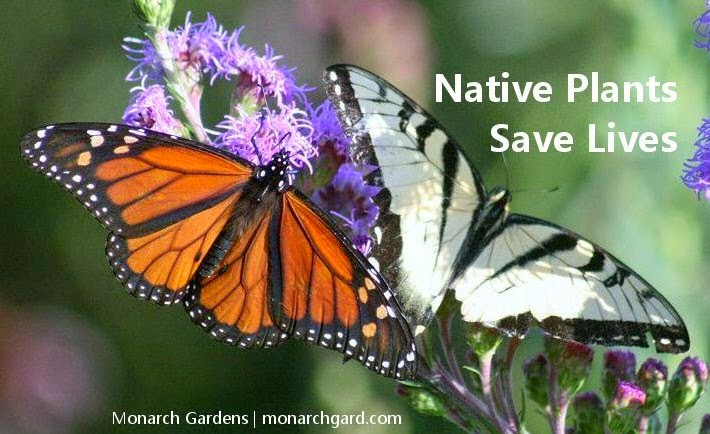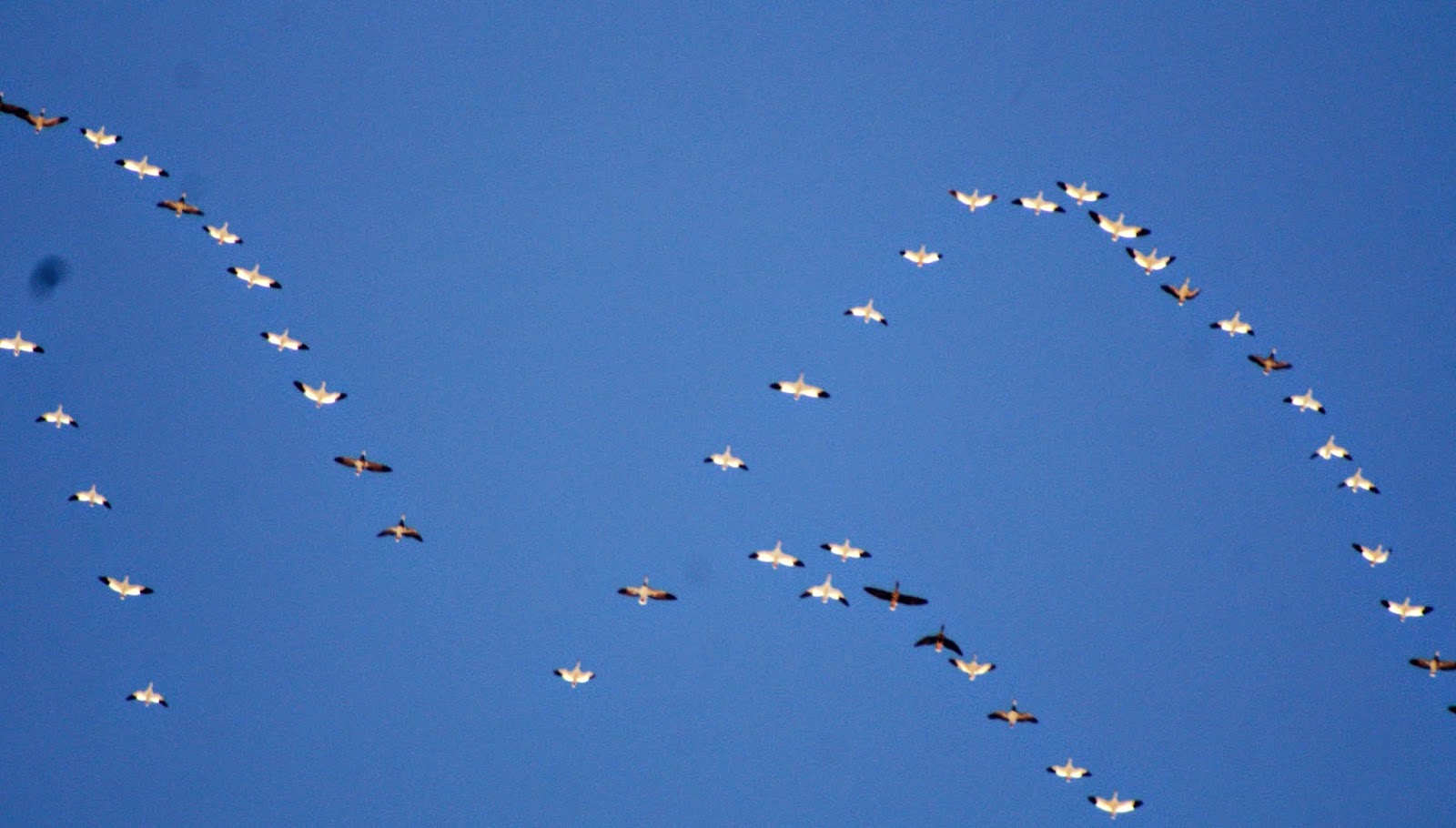The "debate" about native plants is actually one about our larger role on the planet. The often used "dogma" or "agenda" labels ascribed to native plant proponents are meant to trivialize, because taking responsibility for how we live -- and coming to terms with the web of life in western culture -- has always meant an undermining of perceived personal liberty. And that hurts. We don't want to feel hurt. We have a happiness myth that says anything "sad" must be bad and therefore undesirable and therefore erased from culture and consciousness. Unfortunately, we've been poisoned with hierarchical thinking that says we -- American humans -- know best, and that we must push the myth of happiness (or denial) at any cost, because conformity is freedom.
I can think of no greater freedom than living a more selfless life in any way I can, providing for others, seeing myself as part of a web, humbled and connected to my home ground, full of where I am from. Knowing that what I plant matters -- or where I drive or what container I drink from or where my electricity comes from -- is not an indictment but a call to action. Awareness and knowledge create freedom and positive change, which terrifies individuals and groups who have the majority power and profit through our world's loss.
If we can't see native plants as anything more than a personal indictment we can't see the greater good, the democratic principal of inalienable rights that all lives have to live out their time on earth naturally and freely (we do currently perceive this via monarch butterflies). Once upon a time lawns were seen as the democratic ideal, linking houses together in a sign of egalitarian unity; we know now what large swaths of lawn truly represent, and they mimic a scaled down version of what our larger practices represent -- from tar sands oil extraction to overfishing to plastic pollution to wasting fresh water to glyphostate.
 |
| Or, "I don't JUST love plants...." |
I do not think the debate is about native plants vs. exotics, even though we seldom realize it or address it; instead, the debate is about a burgeoning awareness of how we have forever altered the world, often in destructive and terrifyingly unpredictable ways, and that to change our course means changes to our safe and comfortable assumptions that are culturally, socially, and corporately defined.
This is why the novel ecosystem perspective is so tantalizing -- it helps us transition away from unhappy awareness and a closer study of ourselves and our world, shifting the burden of proof or responsibility to something beyond our control; we are part of nature, and thus our manipulation of it requires no "restrictive" ethical code that could guide us to a profound reality of our human condition. A reality that shows we are as fragile and temporary and prone to dust as any other life form on the planet (thus equal and connected), and that our hearts and minds are not so much a liability as an evolutionary miracle and profound gift. That aforementoned liability comes in the form of empathy for other species and for future generations of humans; surely empathy is the greatest equalizer in the web of life, and it's our most important faculty. It's also the greatest freedom we can give ourselves as we garden selflessly and become empowered through the act of planting aster, oak, goldenrod, mountain mint, viburnum, or milkweed.
What's the next step? Where do we begin? Creating landscapes with as many site-adapted natives as we can, in designs that are appealing, artistic, and demonstrate the full capacity of our natural heritage and ethical role on this world. Where else? Sitting still in front of a flower for ten minutes watching what lands and takes off, what climbs the stalk, what waits in hiding for prey; think of it as empathy exercise, spiritual exercise, or the freedom of consciousness to dream bigger.















.JPG)



























